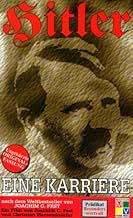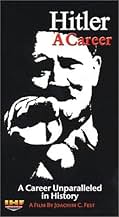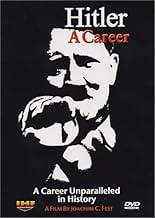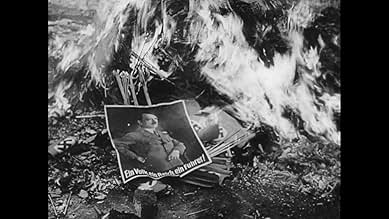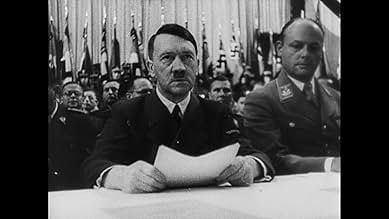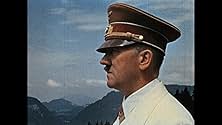Adicionar um enredo no seu idiomaThis meticulously assembled film dissects the Third Reich with an analytical blade, charting Hitler's improbable rise, his mastery of crowd psychology and his consummate skill in exploiting ... Ler tudoThis meticulously assembled film dissects the Third Reich with an analytical blade, charting Hitler's improbable rise, his mastery of crowd psychology and his consummate skill in exploiting others' weaknesses.This meticulously assembled film dissects the Third Reich with an analytical blade, charting Hitler's improbable rise, his mastery of crowd psychology and his consummate skill in exploiting others' weaknesses.
- Direção
- Roteirista
- Artistas
- Narrator
- (German version)
- (narração)
- Self
- (cenas de arquivo)
- Self
- (cenas de arquivo)
- Self
- (cenas de arquivo)
- Self
- (cenas de arquivo)
- (as Dr. Karl Brandt)
- Self
- (cenas de arquivo)
- Self
- (cenas de arquivo)
- Self
- (cenas de arquivo)
- Self
- (cenas de arquivo)
- Self
- (cenas de arquivo)
- Self
- (cenas de arquivo)
- Self
- (cenas de arquivo)
- Self
- (cenas de arquivo)
- Self
- (cenas de arquivo)
- Self
- (cenas de arquivo)
- Self
- (cenas de arquivo)
Avaliações em destaque
It's probably still the most abundant treasure chest of film and image about the dictator available. We have no talking experts and none of the glossy, samey feel of Netflix documentaries. It's German made and narrated by a Brit - so Hitler is, of course, savaged, often with sardonic wit. The tone is hypnotic.
The biggest sense it covneys is of Hitler as both director of theater and actor on a stage he prepares. In a few marvelous, and previously unseen by me footage, we see not just the vitriolic exposition up on stage - but also the nervous preparation, the uncertainty of the early days. And when deprived of the spotlight, having to sit with others as a more ordinary mortal (such as at Berghof), morose, taciturn, uninteresting.
FDR was a huge contrast. Similarly magnetic when he wanted to, inspiring on a stage, but happier outside of it, gregarious with company and loved a good gossip. He did entertain his own coterie like Hitler, but his home was vivacious, open-hearted.
It paints a good picture of early Hitler in Vienna growing quietly resentful at being ordinary. In a Travis Bickle or Lee Oswald kind of way.
The need was always for a grandiose stage and adulation from a crowd. In later days, confused by unexpected successes (invading through the Ardennes), he thought he was also a strategic genius, to disastrous results for everyone.
His bitterest legacy, the Holocaust, is included near the end, with harrowing footage. WWII footage will be more familiar from other places, by comparison to the early days. And how fitting that post Stalingrad at the latest, there are no more foootage of speeches and crowds and only the well known Hitler who looks shaken and glum.
There are so many riches here; we don't just see Hitler driving triumphant into Vienna for the Anschluss, we also see the speech before an endless crowd welcoming his home country Austria into the empire. Footage from the Blitz we have seen countless times; but I've never before seen footage of German parades in the closing stages of the war, trying to recapture the fervor of early Nazi days but looking ramshackle and foolish amid ruins of a half-destroyed city.
So this is essential viewing to this day, more so for the prewar coverage. WWII changed everything in ways we still do not fully grasp - our world was sped up by maybe 100 years I think. We are picking its lessons apart at our peril. One of the best I've seen.
Você sabia?
- Citações
Narrator of English version: Any man who put his trust in Hitler, could count on his protection. The frightened middle classes, the working man, or the unemployed. His energetic platitudes were directed at everybody.
- ConexõesFeatures Triunfo da Vontade (1935)
Principais escolhas
- How long is Hitler: A Career?Fornecido pela Alexa
Detalhes
- Tempo de duração
- 2 h 30 min(150 min)
- Cor
- Mixagem de som
- Proporção
- 1.37 : 1




